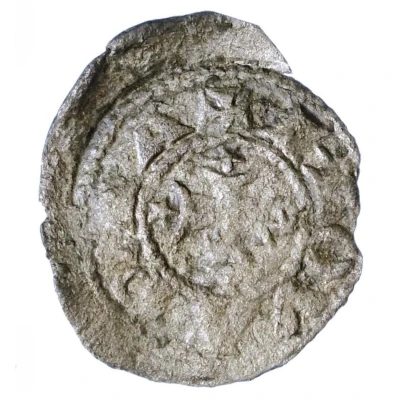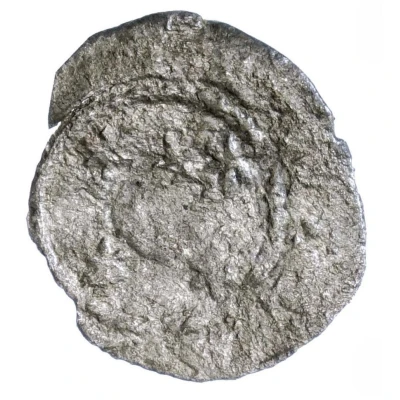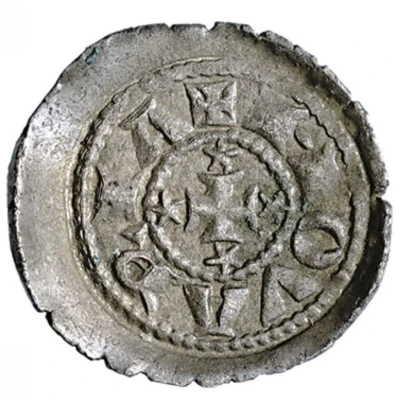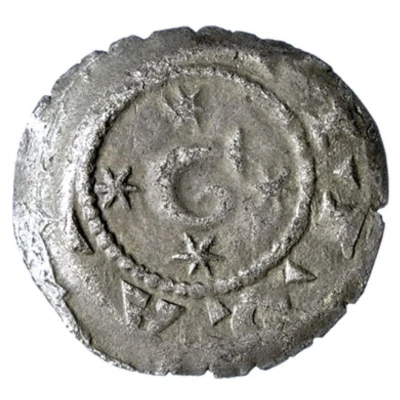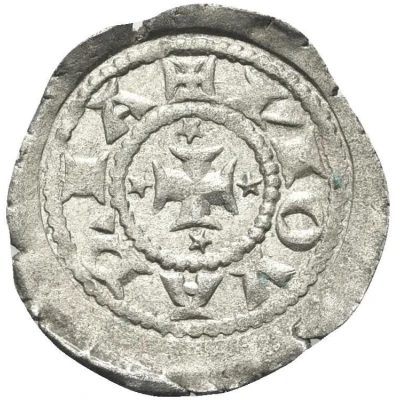
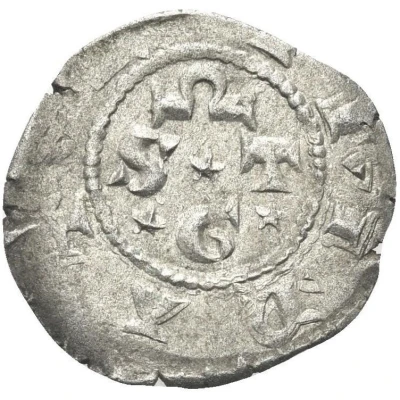

© Numismatica Ranieri
Denaro STG ND
| Billon | 0.50 g | 16 mm |
| Issuer | Commune of Novara (Novara, Italian States) |
|---|---|
| Period | Commune (1250-1448) |
| Type | Standard circulation coin |
| Years | 1250-1300 |
| Value | Denaro (1⁄240) |
| Currency | Lira |
| Composition | Billon |
| Weight | 0.50 g |
| Diameter | 16 mm |
| Shape | Round (irregular) |
| Technique | Hammered (scyphate) |
| Demonetized | Yes |
| Updated | 2024-10-05 |
| Numista | N#426646 |
|---|---|
| Rarity index | 100% |
Reverse
Letters arranged in shape of cross within inner beaded circle.
Scripts: Greek, Latin
Lettering:
✠ IMRATOR
Ω
S ★ T
★ G ★
Unabridged legend:
Imperator
Ω
Sanctus
Gaudentius
Translation:
Emperor
Saint Gaudentius
Comment
Grierson and Travaini propose the second half of the 13th century for the Novara deanari and obol.
Variable weight between about 0.45 - 0.6 grams. Other variations are known (five-pointed and six-pointed stars, letter N in Novara made more like an H; normally the N is retrograde).
Interesting fact
One interesting fact about this coin is that it was minted during a time of great economic and political change in Italy. The Commune of Novara was a significant city-state in the Italian States during the late medieval period, and the Denaro was a widely used coin throughout the region. The fact that it was made of Billon, a copper and silver alloy, suggests that it was a relatively valuable coin for its time. Additionally, the fact that it weighs 0.50g indicates that it was a small coin, making it easy to handle and transport. Overall, this coin provides a fascinating glimpse into the economic and political climate of medieval Italy.
